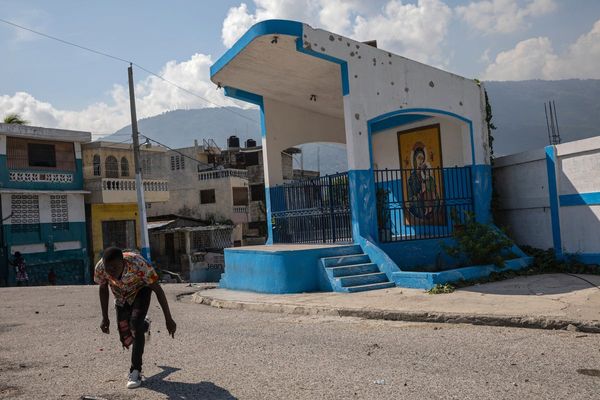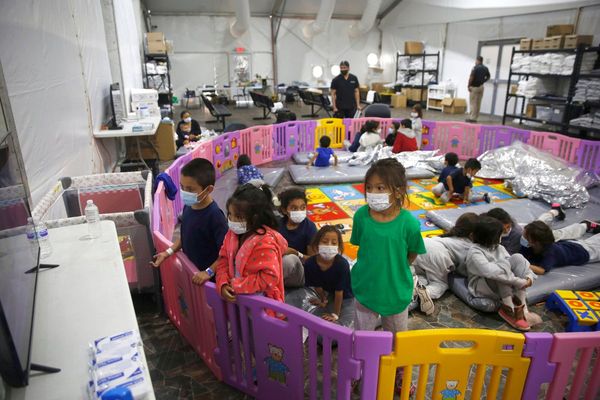
Israel launched a major raid on a Jenin refugee camp – a Palestinian militant stronghold in the Israeli-occupied West Bank – on 3 July, killing at least a dozen Palestinians in clashes with gunmen.
On Tuesday (4 July), a suspected Palestinian car-ramming and stabbing attack injured at least eight people in Tel Aviv.
While the Israeli military has confirmed it had withdrawn troops from the West Bank, ending an intense two-day operation that has driven thousands of people from their homes, Israeli forces launched air strikes on the northern part of the Gaza Strip on Wednesday morning (5 July) after saying that rockets were fired towards Israel from the same area.
Is it still safe to travel to Israel amid the escalating unrest? Here are the key questions and answers.
Where is Jenin?
Jenin is a small city in the hilly, far north of the West Bank, and contains the eponymous concrete and cinder-block refugee camp housing around 14,000 people. They are descendants of Palestinians dispossessed when Israel was created in 1948, and most are impoverished and unemployed.
Can I travel to Israel right now?
Yes. Flights from the UK are operating as usual, with direct flights from London and Manchester to Tel Aviv.
The UK’s Foreign, Commonwealth and Development Office (FCDO) warns against all but essential travel to the city of Jenin, as well as areas north of and including Jenin city, Burqin and Arranah in the north of the West Bank. This includes Jenin refugee camp and all areas north of this until the Jalamah checkpoint for access to Israel.
The FCDO also advises against all but essential travel to the city of Nablus, Joseph’s Tomb, and the Balata and New Askar refugee camps near Nablus, plus the village of Huwara, south of Nablus.
However, it’s worth noting that this advice is not related to current the Israel military action; before the 3 July raid, this guidance was already in place.
The FCDO advises against all travel to Gaza, the Sheba’a Farms and Ghajjar, and within 500m of the border with Lebanon (the “Blue Line’”) east of Metula, including the northern edge of the town, and within 500m of the border with Syria (the “Alpha Line”).
Across Israel and the West Bank, “there is a risk of violent incidents, including stabbings, shootings, arson, vehicle rammings and stone throwing attacks on people and vehicles,” says the FCDO, with “a risk that tourists or bystanders could be caught up in any of these types of incident”.
“You should check the local news before travelling to see if there have been recent clashes, be vigilant, avoid any large gatherings or demonstrations, avoid areas which have been the site of recent violence and follow the instructions of the local authorities,” adds the FCDO.
The US State Department does not advise against travel to Israel but suggests visitors “exercise increased caution”; it does warn that people should not travel to Gaza.
Is it safe to visit Israel?
As with the recent unrest in France, it depends on where you go. The main tourist areas, such as Tel Aviv, Jerusalem, the Negev, Nazareth, and the Dead Sea remain relatively safe, and the majority of trouble occurs in areas tourists wouldn’t normal venture to. According to Tourist Israel, a travel service provider in the country, while it’s “understandable to be cautious” about visiting, Israel is “statistically very safe to travel within”.
Can I cancel my trip to Israel?
The FCDO has not warned against travelling to Israel, so you won’t be entitled to a refund if you postpone or cancel your trip.
If the advice were to change and the FCDO advised against all but essential travel to Israel and you went ahead with a trip anyway, you would likely not be covered by travel insurance. (However, if FCDO advice changes after you’ve bought an insurance policy, you may still be covered; check the terms and conditions).
If you are concerned about visiting Israel, speak to your airline and/or holiday provider to discuss your options.
If the FCDO issues a warning while you are in an affected region, you will be covered as normal under the medical and personal accident sections of your travel insurance policy, so long as you follow the latest FCDO advice for British nationals already in the area.







